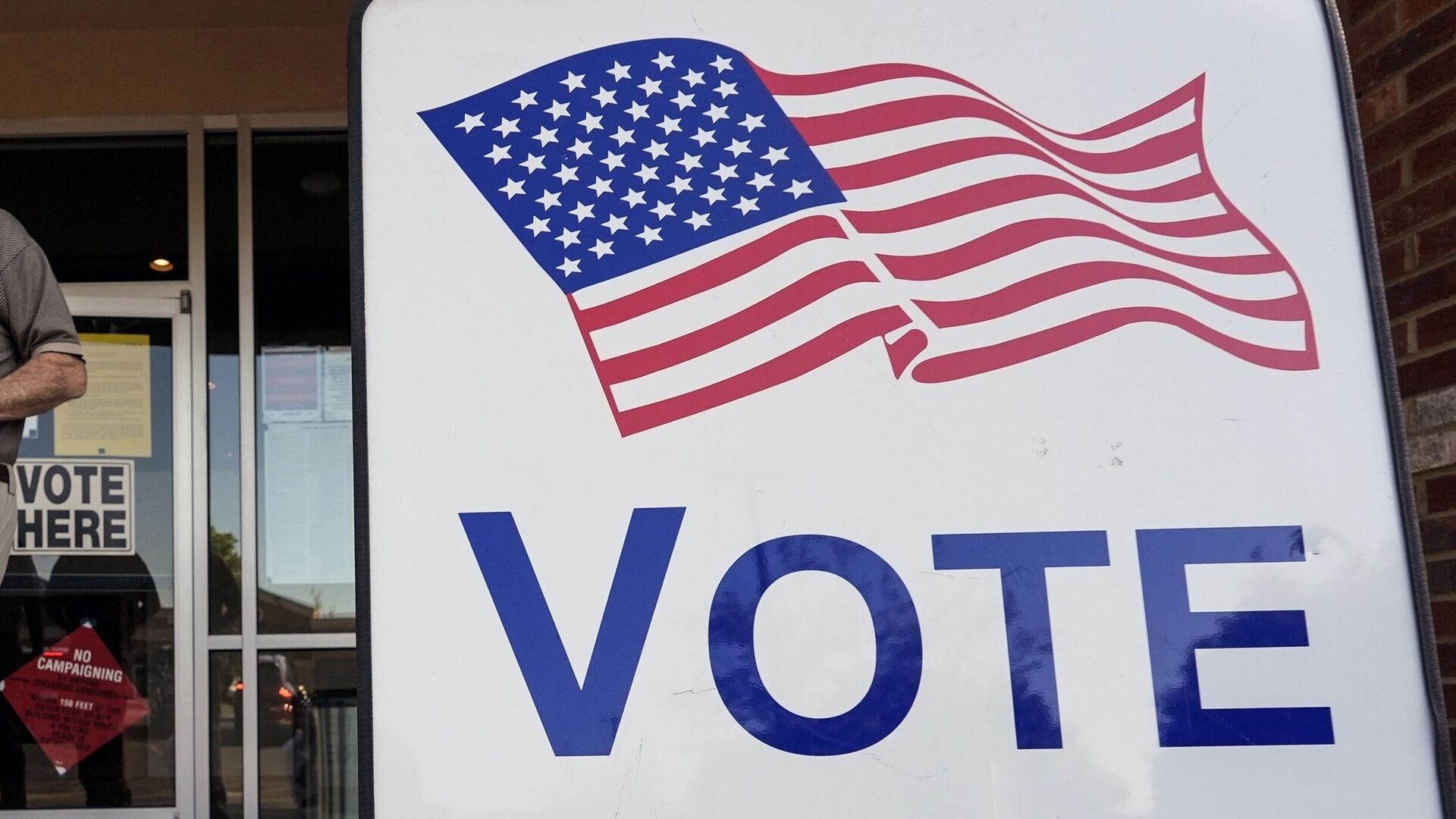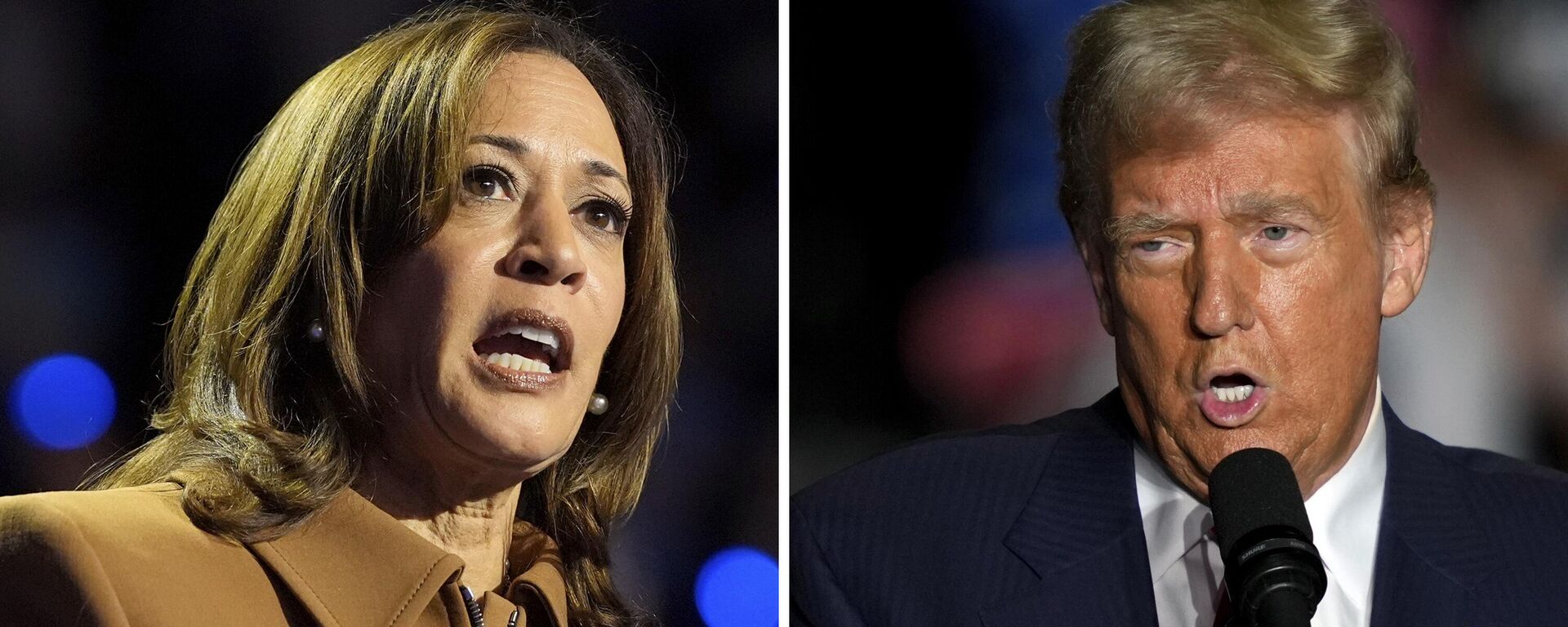https://en.sputniknews.africa/20241102/2024-us-election-has-nothing-to-offer-africa-amid-shifting-domestic-and-foreign-policies-sa-prof-1069003537.html
2024 US Election Has ‘Nothing’ to Offer Africa Amid Shifting Domestic and Foreign Policies: SA Prof.
2024 US Election Has ‘Nothing’ to Offer Africa Amid Shifting Domestic and Foreign Policies: SA Prof.
Sputnik Africa
The fast-approaching US elections will be held next Tuesday, with Democratic Vice President Kamala Harris and Republican candidate Donald Trump competing for... 02.11.2024, Sputnik Africa
2024-11-02T17:20+0100
2024-11-02T17:20+0100
2024-11-02T17:49+0100
opinion
united states (us)
2024 united states presidential election
north america
africa insight
donald trump
kamala harris
joe biden
africa
israel
https://cdn1.img.sputniknews.africa/img/07e8/0b/02/1069004171_0:32:2476:1425_1920x0_80_0_0_40faace2ceccb23d19132f2cbe9df371.jpg
As the US heads toward the 2024 presidential election, Professor Patrick Bond from the University of Johannesburg highlighted in an interview with Sputnik Africa that, regardless of the outcome, the leading candidates offer limited advantages for African interests.While Kamala Harris’s policies may appear somewhat progressive, Bond suggested that initiatives such as the African Growth and Opportunity Act and climate action are unlikely to bring significant changes for African nations.The domestic policies of Harris and Trump reflect vastly different priorities. Donald Trump, according to Bond, aims to “deconstruct the government” through Project 2025, a plan that emphasizes deregulation and the reduction of government power. Bond noted that Trump "wants to really deconstruct the government," with Elon Musk slated to lead a commission to review all government regulations.Harris, on the other hand, is expected to focus on climate initiatives while balancing energy production, including fracking, in crucial swing states like Pennsylvania.In terms of foreign policy, Bond pondered that Harris may continue a multilateral approach similar to Biden’s, with attempts to “respect [US'] partners” internationally, especially in Europe and the Middle East.Trump, however, shows less inclination toward foreign engagement, with Bond observing that “Trump will certainly posture that he will try to solve the war” in Ukraine but lacks concrete plans to do so.Both candidates’ positions on the Israel-Palestine conflict could have electoral repercussions. Bond noted Harris faces a significant challenge in retaining support from Arab American voters, particularly in swing states like Michigan.Conversely, Bond suggested that “Trump will give Netanyahu all the room he wants,” implying stronger support for Israel under Trump’s potential presidency.On trade, Bond pointed out that Trump remains staunchly protectionist, advocating policies that could impact the global economy by pressuring American companies to repatriate jobs outsourced abroad. Harris, according to the expert, might take a more cautious approach, acknowledging the socioeconomic divisions exacerbated by globalization.
https://en.sputniknews.africa/20241031/us-election-2024-limited-changes-for-africa-geopolitical-tensions-to-grow-says-zimbabwean-expert-1068961597.html
united states (us)
north america
africa
israel
Sputnik Africa
feedback@sputniknews.com
+74956456601
MIA „Rossiya Segodnya“
2024
Christina Glazkova
https://cdn1.img.sputniknews.africa/img/07e7/0b/07/1063380906_0:0:673:674_100x100_80_0_0_79628b4d0cd9f29291a57aa13bbf9e7a.jpg
Christina Glazkova
https://cdn1.img.sputniknews.africa/img/07e7/0b/07/1063380906_0:0:673:674_100x100_80_0_0_79628b4d0cd9f29291a57aa13bbf9e7a.jpg
News
en_EN
Sputnik Africa
feedback@sputniknews.com
+74956456601
MIA „Rossiya Segodnya“
Sputnik Africa
feedback@sputniknews.com
+74956456601
MIA „Rossiya Segodnya“
Christina Glazkova
https://cdn1.img.sputniknews.africa/img/07e7/0b/07/1063380906_0:0:673:674_100x100_80_0_0_79628b4d0cd9f29291a57aa13bbf9e7a.jpg
united states (us), 2024 united states presidential election, north america, africa insight, donald trump, kamala harris, joe biden, africa, israel, sputnik africa, world bank, international monetary fund (imf), economy, israeli-palestinian conflict, ukraine crisis, benjamin netanyahu, globalization, trade, vote
united states (us), 2024 united states presidential election, north america, africa insight, donald trump, kamala harris, joe biden, africa, israel, sputnik africa, world bank, international monetary fund (imf), economy, israeli-palestinian conflict, ukraine crisis, benjamin netanyahu, globalization, trade, vote
2024 US Election Has ‘Nothing’ to Offer Africa Amid Shifting Domestic and Foreign Policies: SA Prof.
17:20 02.11.2024 (Updated: 17:49 02.11.2024) Christina Glazkova
Writer / Editor
The fast-approaching US elections will be held next Tuesday, with Democratic Vice President Kamala Harris and Republican candidate Donald Trump competing for the presidency. Sputnik Africa interviews African experts to find out how the continent sees the future of the North American power's domestic and foreign policy.
As the US heads toward the 2024 presidential election, Professor
Patrick Bond from the University of Johannesburg highlighted in an interview with
Sputnik Africa that, regardless of the outcome, the leading candidates offer limited advantages for African interests.
“The Harris project, which is carrying on Biden, which is carrying on Obama, really has nothing to offer much to Africa, to the Third World,” Bond stated, casting doubt on either candidate's impact on the continent.
While Kamala Harris’s policies may appear somewhat progressive, Bond suggested that initiatives such as the African Growth and Opportunity Act and
climate action are unlikely to bring significant changes for African nations.
The domestic policies of Harris and Trump reflect vastly different priorities. Donald Trump, according to Bond, aims to “deconstruct the government” through Project 2025, a plan that emphasizes deregulation and the reduction of government power. Bond noted that Trump "wants to really deconstruct the government," with
Elon Musk slated to lead a commission to review all government regulations.
Harris, on the other hand, is expected to focus on climate initiatives while balancing energy production, including fracking, in crucial swing states like Pennsylvania.
In terms of foreign policy, Bond pondered that Harris may continue a multilateral approach similar to Biden’s, with attempts to “respect [US'] partners” internationally, especially in Europe and the Middle East.
"She appears to mix the neo-con that is to export American democracy, which really is often a veil for exporting US corporate power, using vehicles like the World Bank, IMF, and especially the World Trade Organization," he said.
Trump, however, shows less inclination toward foreign engagement, with Bond observing that “Trump will certainly posture that he will try to solve the war” in Ukraine but
lacks concrete plans to do so.
Both candidates’ positions on the
Israel-Palestine conflict could have electoral repercussions. Bond noted Harris faces a significant challenge in retaining support from Arab American voters, particularly in swing states like Michigan.
“Arab Americans simply have no faith that she will support Palestinian rights, either a two-states solution or just to stop the genocide,” the professor warned.
Conversely, Bond suggested that “Trump will give
Netanyahu all the room he wants,” implying stronger support for Israel under Trump’s potential presidency.
On trade, Bond pointed out that Trump remains staunchly protectionist, advocating policies that could impact the global economy by pressuring American companies to repatriate jobs outsourced abroad. Harris, according to the expert, might take a more cautious approach, acknowledging the socioeconomic divisions exacerbated by globalization.



